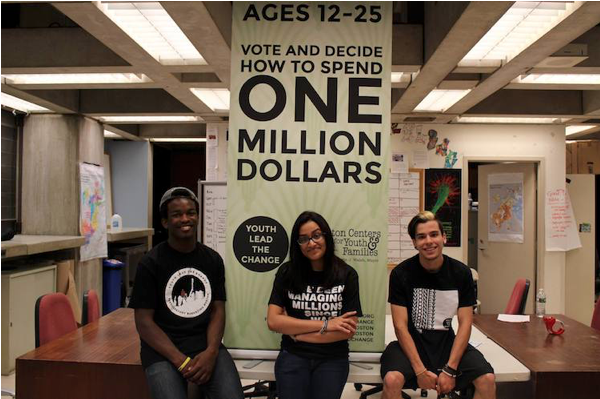In January, Nevada became the first state in the US to have women in the majority in the state legislature. This article from The Washington Post highlights how issues and bills are being debated that would “not have seen the light of day” in previous sessions: “Bills prioritizing women’s health and safety have soared to the top of the agenda. Mounting reports of sexual harassment have led one male lawmaker to resign. And policy debates long dominated by men, including prison reform and gun safety, are yielding to female voices.”
Having the people affected by decisions and policies participate in the debate and decision-making is a step forward. Tom Atlee of the Co-Intelligence Institute defined the original dream of democracy as “the participatory determination of our collective fate.”
Some of the core principles of social and racial equity are: Who decides? Who has a voice? What inputs and experiences inform the decisions being made? Centuries before us, people revolted against monarchies in which one person held concentrated power. We have been slowly evolving toward more democratic forms of governance and decision-making. It feels we are in a time of cross-currents, where there are innovations and breakthroughs in participatory process and governance, but there are still many rooms of power where decisions are made that don’t include participation and input of those affected. Plus, there are polarizing developments, extreme concentrations of wealth and power, and authoritarian actions that undermine democratic process.

Evolving how we make collective decisions is imperative and will affect our ability to make sound decisions on many issues. This is a time to expand the practice of participation and good governance in decision-making, at every level. This applies in teams, organizations, coalitions, networks, philanthropy, and the political process.
Each issue is like a string connected to a web. We see the string and think the answers are simple and obvious. No one person can see all the areas where the string connects and affects other issues, people’s lives and the environment. When decision-making power is concentrated in the hands of a few, we are less likely to recognize and avoid unintended consequences. Diverse participation widens our collective view and understanding, and it is crucial to shifting patterns of systemic racism and oppression.
Politics tend to divide people into camps and force complex multi-faceted situations into falsely simple yes/no choices. Simplified “for or against” framings, driven by politics, are problematic. Brexit is a case in point. I appreciated this comment on a listserv right after the vote, and see now how prescient it was:
It’s a perfect example of not understanding how to think and make decisions in complex systems; the relationship(s) the UK has with EU is far more involved than even a hundred heads could hold, and it’s suffered a linear intervention reduced to two options of ‘In or Out’. Linear interventions into complex systems explode in your face.
It is critical to adopt approaches to making decisions and governance that are attuned to the complexity and inter-woven nature of the challenges we face and that are rooted in an ethic of care for the well being of everyone (not just those who voted for a particular candidate). Emerging innovations in governance demonstrate that people have the wisdom to come to wise decisions together. Here are a few examples of the bright spots of promise:
- Participatory budgeting – a public process that gives people the power to “decide together how to spend public money,” being used in communities around the world. Check out The Participatory Budgeting Project for more information. [ap_spacing spacing_height=”10px”]
- vTaiwan – a breakthrough, self-organizing democratic process using on-line forums for building consensus and face-to-face live dialogues. Tom Atlee has written about it in this blog series and here are more links shared by Rosa Zubizarreta, who wrote “As I’ve been telling my friends, it’s good to know that something good is happening on the political level, somewhere in the world…” [ap_spacing spacing_height=”10px”]
- A Framework for Inclusive Governance and Rural Planning from Sierra Leone, an integrated process of people’s led planning from the local to regional to national level. [ap_spacing spacing_height=”10px”]
- In philanthropy, conversations on equity and “who decides?” are leading to new models of community-led grantmaking, where community members, particularly those from traditionally marginalized groups, play a more direct role in deciding where grant dollars flow. [ap_spacing spacing_height=”10px”]
- In response to climate change, the Extinction Rebellion in the UK has 3 demands for government action. The third is to move beyond politics: “Government must create and be led by the decisions of a Citizens’ Assembly on climate and ecological justice.” See the Sortition Foundation for more information the process of citizens assemblies. They describe their work this way: “We campaign for a world free from partisan politicking, where representative random samples of everyday people make decisions in informed and deliberative citizens’ assemblies.” [ap_spacing spacing_height=”10px”]
- Democracy R&D is a new global network of organizations helping decision makers make hard decisions and build public trust, while strengthening democracy. Check out the list of countries and organizations to see how many are working on ways to involve everyday people in public decisions. [ap_spacing spacing_height=”10px”]
Originally published at New Directions Collaborative on May 30, 2019 by Beth Tener